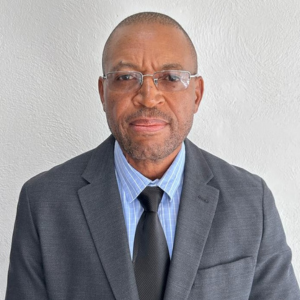The National Construction Summit on Crime-Free Construction Sites, held last week in Durban, has marked the urgent need for reform in the South Africa construction sector, including the enhancement of our regulatory frameworks, improved compliance and ensuring that construction projects are executed transparently.
Organised by the Department of Public Works and Infrastructure (DPWI) in collaboration with the South African Police Service (SAPS) and the Construction Industry Development Board (cidb), this summit served as a critical juncture in the recognition of the challenges the industry is facing. “As many of us in the industry are aware, criminal activities within the construction industry have become a significant barrier for progress and with infrastructure and construction development stressed as cornerstone of national development, the intimidation and violence, the disruption of projects and the delays in projects, can no longer continue,” says Chalmers Pagiwa, CEO of Lubisi Consulting Engineers.The Root – Local Content
The South African government has established policies aimed at promoting local economic development through construction projects. These policies emphasise the importance of hiring local workers, sourcing materials from local suppliers and engaging communities through project steering committees by as much as 30% of overall project budget. While these initiatives have been designed to ensure that construction projects benefit local communities directly, it has had quite the opposite effect. Instead of adhering to established processes, members of the construction mafia frequently disrupt projects by demanding direct negotiations with contractors, complicating compliance with policies and harming the communities they claim to represent.The Intermediary – Consulting Engineers
“As consulting engineers, we are at the forefront of these necessary reforms,” he notes. With the industry moving towards stricter regulatory oversight – including mandatory registration for contractors and professional service providers – consulting engineers play a significant role in guiding clients through these changes while promoting best practices that can mitigate risks associated with criminal activities. The establishment of a new body within the cidb tasked with maintaining a national register of contractors was also discussed at the summit. This initiative aims to ensure that only compliant entities participate in construction projects, enhancing accountability.
“Our responsibility extends beyond compliance; we must advise contractors on meeting registration requirements, ensuring that all parties understand their obligations under the regulatory frameworks and navigate the complexities of compliance, creating a transparent procurement process that benefits all stakeholders involved,” Pagiwa highlights.He adds that through participation in project steering committees, community needs are also addressed effectively. “Engaging with local communities not only helps to alleviate concerns but also empowers them to take an active role in development projects that impact their lives,” he notes. Being uniquely positioned to oversee complex projects, consulting engineers are further instrumental in improving project management standards. “By ensuring projects are executed efficiently and within budget, we can apply our technical expertise to minimise delays caused by mismanagement or external disruptions,” he notes adding that a proactive approaches such as live auditing processes are being implemented to provide real-time oversight of project finances.
The Solution – Collaboration

Chalmers Pagiwa, CEO of Lubisi Consulting Engineers







